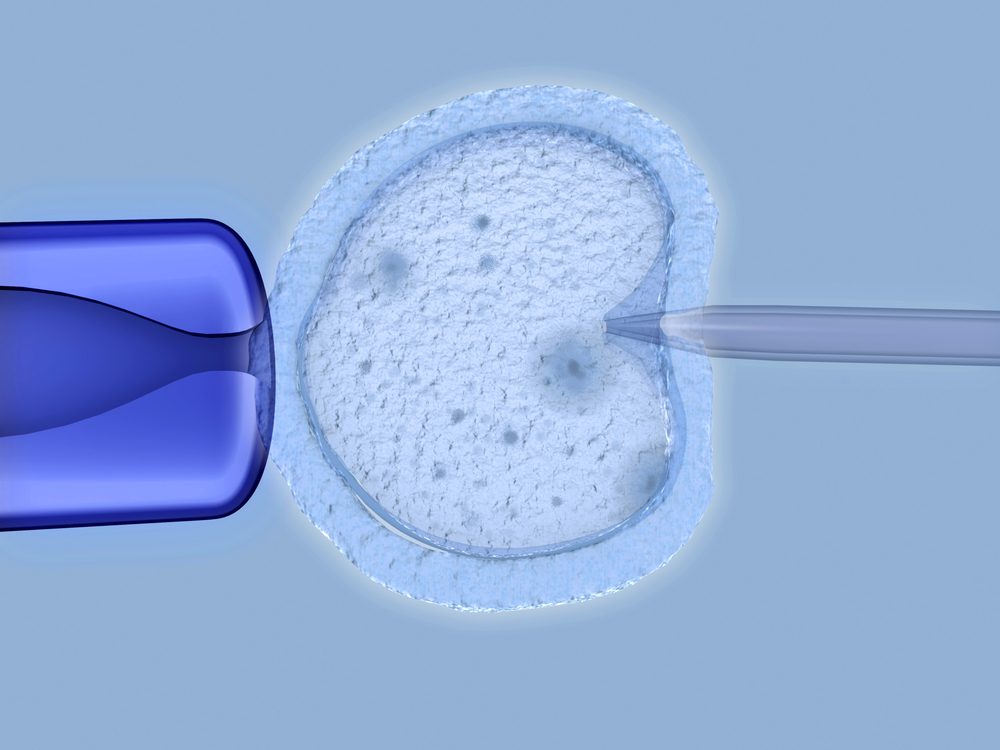According to a new lawsuit, the city of New York is unfairly treating its gay male workers by not providing them with the same medical benefits as women and heterosexual men. The lawsuit states that under the city's insurance, employees can receive coverage for up to three rounds of IVF to have children, except for gay men.
A former city employee and his spouse are suing New York City because they were denied benefits that are available to all other employees, which they argue is discriminatory based on sex and sexual orientation. They claim that no other reason explains why they were treated differently.
The complaint, filed in federal court in New York, argues that there's no valid non-discriminatory reason for the city's healthcare plan to offer IVF benefits to male plan participants with female partners but not to those with male partners.
New York City provides extensive IVF benefits to its 300,000 employees and their dependents, including single women, women in same-sex relationships, and men with female partners. The only exception is gay men.
The city requires individuals seeking IVF services to be infertile, which is defined as an inability to conceive through heterosexual sex or intrauterine insemination, a requirement that disqualifies only gay men. Last year, the American Society of Reproductive Medicine expanded its definition of infertility to include LGBTQ people, but New York City has not done so. updated The lawsuit argues that the city's infertility requirement leads to sex discrimination, which violates several laws and constitutions.
The lawsuit stems from Corey Briskin, a prosecutor at the Manhattan district attorney’s office, and his husband, Nicholas Maggipinto, who were denied the city’s IVF benefits in 2017. They asked the city to change its policy but were unsuccessful.
The city's refusal to provide IVF coverage was a financial and emotional blow to the couple, as they felt that their sacrifice as public servants was not being acknowledged, leading to a deep sense of disappointment. In addition to the financial impact, the couple felt that the city was signaling that they were not supported in their desire to become parents, unlike their colleagues who faced no obstacles in getting IVF covered.In 2020, New York state
that health care plans serving over 100 employees provide IVF benefits and forbade discrimination based on sexual orientation. In that same year, in the
landmark case mandated Bostock v. Clayton County , the United States Supreme Court ruled that Title VII of the 1964 Civil Rights Act prohibited workplace discrimination based on sexual orientation and gender identity. However, despite these changes, the city declined to alter its policy and cover IVF for Briskin and Maggipinto. Therefore, in 2022, the couple filed a class action charge with the Equal Employment Opportunity Commission, which is a necessary step before filing a Title VII case in federal court.Initially, the city only responded to the EEOC proceedings with a statement defending its policy by stating that it does not provide benefits to surrogates. However, according to Peter Romer-Friedman, the couple’s lawyer, the EEOC found that the city would provide IVF benefits to couples using a surrogate, as long as it wasn’t a gay male couple. The EEOC investigation continued for two years, and in March, officials approved the couple’s lawsuit. ruled “The city should be embarrassed by what they filed at the EEOC,” says Romer-Friedman. “It didn’t address the actual allegations, nor did it provide real facts or law regarding these issues.”
While members of New York’s city council have twice proposed
to make its IVF policy inclusive of gay men, including this year, it has not been approved. Romer-Friedman believes that Mayor Eric Adams and the city’s Office of Labor Relations could unilaterally change the policy and, under the state law mandating IVF coverage, have an obligation to do so.
“Regardless of their legal agreement, it’s unjust and unfair,” says Romer-Friedman. “And it’s not as if the cost of these benefits would make a difference to the city. It’s a small amount when considering how much money the city spends on health care for city employees, spouses, children, retirees.” legislation The complaint names the city as the defendant along with Adams, his predecessor Bill deBlasio, and the current and former commissioners of the Office of Labor Relations. The mayor’s office did not immediately respond to a request for comment.
The city’s intransigence has been both baffling and hurtful to Briskin and Maggipinto. “I was actually really hopeful that this was an issue of oversight, that they just didn’t realize,” says Maggipinto. “I still am stunned that this is going on for this long. It really makes me question the motives of the individuals making the decisions at City Hall.”
In 2022, Briskin left the district attorney’s office for a clerkship. The following year, the couple began paying for IVF. That’s when “I made the tough decision to jump ship and move into the private sector, mainly because we had mounting bills related to our family building journey,” Briskin said. “Yet another impact of the policy on our lives.”
In filing this class action, the couple hope not only to recoup their expenses and change New York City’s policy, but to set precedent under Title VII that would help countless other gay people trying to start families. As employers increasingly include IVF in benefits packages, including for LGBTQ employees, in recent months,
have started to observe workplaces that refuse to provide such benefits to LGBTQ individuals as a type of sex discrimination. Last week, Aetna
a lawsuit brought by a lesbian couple who had to pay for fertility treatments themselves. As of last autumn, 21 states mandate certain employers to offer some form of fertility coverage, but only eight of them cover LGBTQ and single individuals. New York is one. courts “This is one of the most crucial questions after the settled decision that federal courts could address regarding the rights of gay and lesbian employees,” says Romer-Friedman. The city’s current policy, the lawsuit highlights, encourages all groups to start a family except gay men—the one group that will always require IVF to have biological children.
This article Bostock first appeared on Mother Jones
. It has been republished with the publication’s permission. A groundbreaking case questions why a progressive city refuses to assist some men in starting families.. It has been republished with the publication’s permission.









